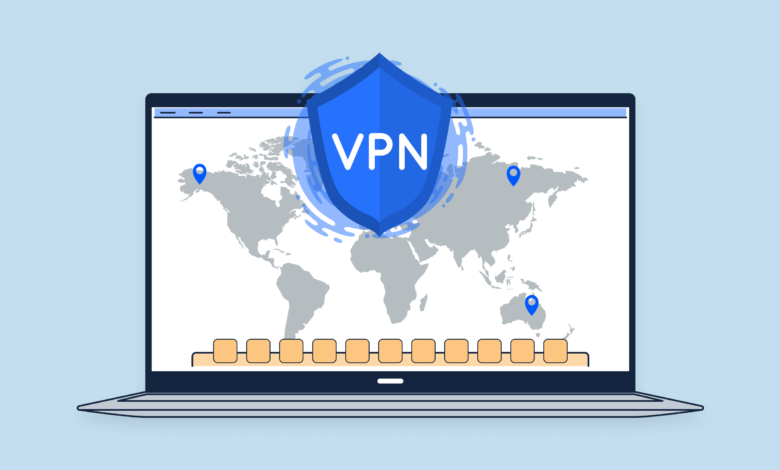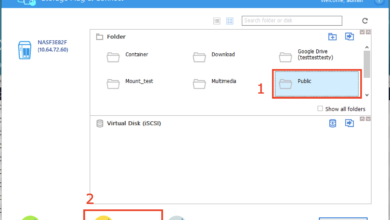Understanding the Risks and Rewards of Using a Free VPN Service and Why you need DNS Management Services

We live in an era where grocery prices are at an all-time high, where interest rates have no interest in dropping anytime soon, the crypto pros have relaxed their campaigns and online security concerns are at an all-time high so we rely on Virtual Private Networks (VPNs) tools that have become a must-have for anyone looking to keep their digital lives private and secure. A VPN can mask your internet protocol (IP) address, thus shielding your identity and data from prying eyes. Amidst the sea of VPN options, free VPN services often stand out for their enticing price tag—zero dollars. While they have the undeniable advantage of cost savings, it’s important to weigh the potential costs that aren’t reflected in the price point.
Unlike premium VPNs that charge a subscription fee, free VPNs have to monetize in other ways. For some of them, this often includes placing ads within their service, but it can also lead to more insidious issues, such as selling user data to third parties. While the objective remains the same—enhancing your online privacy and freedom—the means to achieve it and the potential side effects can vary significantly. In anycase, at the end of this article, you might be convinced that the benefits outweigh the risks and the margin is not close.
The Benefits of Free VPNs
The most obvious benefit of a free VPN is in the name: it’s free. This allows anyone, regardless of their economic situation, to get a semblance of privacy and security online. With the right free VPN, you could potentially:
- Unblock content: Easily access region-restricted websites and media, such as YouTube videos that aren’t available in your country. For those who live in or travel to regions with strict censorship laws, a VPN can be a lifeline to unrestricted information.
- Improve gaming experiences: A VPN for gaming might reduce ping and lag by connecting to servers that offer a more direct route to the game server. This can also help gamers access geo-restricted game servers or early releases.
- Block annoying ads: Some VPNs come with integrated ad blockers that can enhance your browsing experience by removing intrusive advertisements and even reduce risks of malware from malvertising.
- Enhance public Wi-Fi security: Using public Wi-Fi can expose your data to cybercriminals. A VPN encrypts your traffic, reducing the risk of having your personal information intercepted.
However, it’s essential to choose wisely when opting for a free VPN, as not all offer the same level of benefits, and some may come with pitfalls.
The Risks Associated with Free VPNs
While the idea of a free VPN is attractive, there are several risks that come with choosing a cost-free service:
- Data privacy concerns: Unfortunately, some free VPN providers may track your online activities and sell your browsing history to advertisers. This practice essentially negates the primary purpose of using a VPN in the first place—to protect your privacy.
- Limited data and slower speeds: Free VPNs often cap data usage and throttle connection speeds to manage their servers’ load. This can be frustrating, especially if you’re trying to stream high-definition content or enjoy a smooth gaming experience.
- Fewer server options: The variety of servers and countries you can connect to is typically limited with a free VPN. This can result in overcrowding on available servers, leading to even slower connection speeds.
- Potential malware risks: Some less-reputable free VPN services have been known to carry malware. This creates a significant security risk, as malware can be used to steal sensitive information or damage your device.
How to Use a Free VPN Safely
Despite these risks, not all hope is lost. There are ways to enjoy the rewards of a free VPN while minimizing potential downsides:
- Do your research: Before downloading any VPN service, paid or free, read reviews and investigate the provider’s reputation. Look for transparency in their privacy policy and a clear explanation of how they handle your data. Here is a comprehensive guide on How to Pick a VPN
- Test the service: Start with a trial run of the VPN to assess its performance and reliability. This can give you a sense of how the VPN operates without committing to long-term use.
- Limit sensitive transactions: Avoid conducting sensitive activities, like online banking, while connected to a free VPN. If you must perform such activities, consider a premium VPN with a proven track record of privacy and security.
- Keep your expectations realistic: Understand that a free VPN likely won’t offer the same level of service as a paid one. If your needs are minimal and you’re primarily concerned with light browsing or occasional streaming, a free VPN might be sufficient.
DNS Management Services:
DNS management is something serious business owners and their technology consultants should take seriously in 2024, after all the crazy breaches that happened last year.
In the rapidly evolving landscape of cybersecurity and threat management, Managed Service Providers (MSPs) and Managed Security Service Providers (MSSPs) are constantly on the lookout for robust solutions that can offer comprehensive protection to their client’s digital assets. Herein lies the importance of DNS Management Services – these are crucial for guarding against an array of sophisticated cyber threats that exploit DNS vulnerabilities to launch attacks such as phishing, malware distribution, and data exfiltration. Having a reliable DNS Management Service in place, like Control D, not only bolsters a network’s defense mechanisms but also provides MSPs and MSSPs with a powerful tool to enhance their service offerings and ensure their clients’ online activities remain secure and efficient.
Control D rises above conventional DNS services by providing an extensive suite of DNS-based security solutions that are easy to deploy, manage, and integrate into existing IT infrastructures. With its channel program tailored specifically for MSPs and MSSPs, Control D enables partners to maximize their margins while extending world-class DNS security to their clientele. This symbiotic relationship not only strengthens the security posture of clients but also reinforces the reputation of MSPs and MSSPs as trusted advisors and providers of premier cybersecurity solutions. By leveraging Control D, partners have a significant advantage in the marketplace – they can offer differentiated services, achieve greater customer satisfaction, and forge stronger, lasting business relationships built on the foundation of superior digital protection and management.
Closing Thoughts
The decision to use a free VPN service should not be taken lightly. Weigh the rewards of free access against the risks to your privacy and online experience. In the opinion of this writer, the rewards outweigh the risks. Carefully consider your specific needs and the level of risk you’re willing to accept. Ultimately, the best VPN for you—free or paid—is one that respects your privacy, provides stable and fast connections, and offers a satisfactory user experience.
In the competitive digital landscape, a wise choice can lead to an improved online experience, while a poor one can leave your data exposed and your privacy compromised. Make an informed decision, and tread carefully on the path to digital privacy and security.



